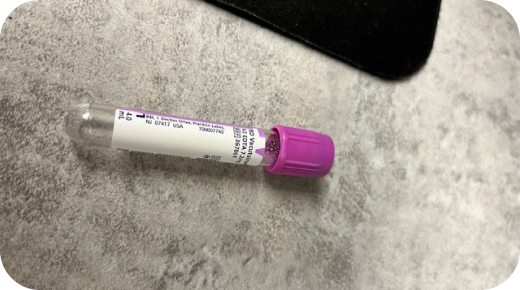Hemoglobin A1c Test
The Hemoglobin A1c (HbA1c) test is a blood test that provides information about a person’s average blood glucose levels over the past two to three months. It measures the percentage of hemoglobin—the protein in red blood cells that carries oxygen—that is glycated or has glucose attached to it. The HbA1c test is primarily used to assess long-term blood sugar control, particularly in individuals with diabetes.
Price: $37

ABOUT THE TEST
The HbA1c results are reported as a percentage. Normal levels are typically below 5.7%, and higher values indicate poorer blood sugar control. Here’s a general interpretation:
- Normal: Less than 5.7%
- Prediabetes: 5.7% to 6.4%
- Diabetes: 6.5% or higher
Blood Sugar Control Over Time: Unlike daily blood glucose monitoring, which provides a snapshot of current glucose levels, the HbA1c test reflects average blood sugar levels over a more extended period. This is useful in evaluating how well blood sugar has been controlled over several weeks.
Diabetes Management: For individuals with diabetes, maintaining blood glucose levels within a target range is crucial for preventing complications. The HbA1c test helps healthcare providers gauge the effectiveness of diabetes management plans and adjust treatment if necessary.
Risk Assessment: The results of the HbA1c test are used to assess the risk of diabetes-related complications, such as cardiovascular disease, kidney damage, and nerve damage. Lowering the HbA1c level through better blood sugar control can reduce the risk of these complications.
Monitoring Treatment: For individuals with diabetes, the HbA1c test is often performed regularly to monitor the effectiveness of medications, lifestyle changes, and overall diabetes management.
